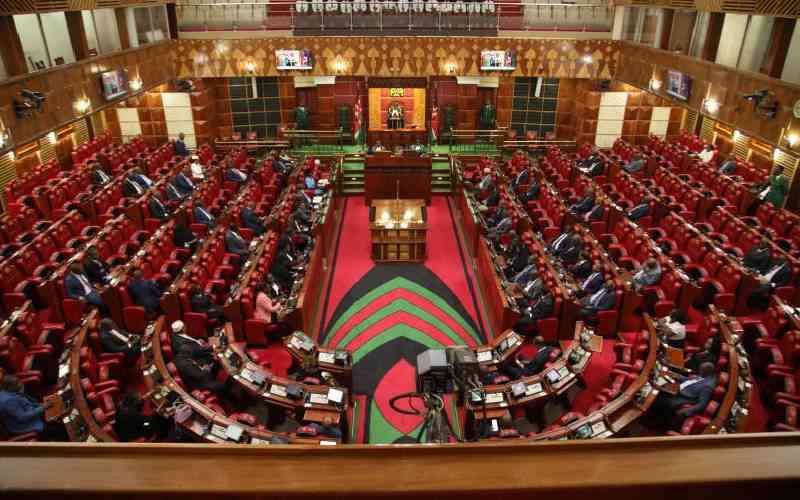By Robert Nyasato
The global economic recession has taken a huge toll on the local soapstone industry, with exports dropping by more than 20 per cent.
Kisii Soapstone Art and Craft Managing Director Daniel Apepo says the industry, that survives on the world market has remained in business because of the monopoly it enjoys.
"Eighty per cent of the soapstone products are exported, while 20 per cent is sold locally," he said.
Soapstone products have a huge profit margin when exported and can fetch as much as twice the investment capital.
He said the sector was among the first to suffer the effects of the crisis because it largely depends on tourists, who are no longer buying soapstone artifacts as before.
Apepo said soapstone business had an annual turnover of Sh16 million before the crisis, but for the last two years, it had steadily dropped to Sh13 million by last year.
"We may not even manage Sh12 million this year since the peak selling season is over and we only received Sh8 million," he said in an interview.
Apepo said the recession had dealt a deadly blow to soapstone dealers, who were recovering from effects of post-election crisis.
He said daily sales had nose-dived from between Sh15,000 and Sh30,000 to as low as Sh3,000.
Sales affected
Unlike during post-election crisis, when only the local market was affected, global recession had hurt sales locally and abroad.
Apepo said international buyers had cut placement of orders for soapstone products by more than 20 per cent and were postponing deliveries because of cash flow problems.
"This is a strange development because previously we used to place orders and even before delivery, they asked for more. At the moment, they have been cancelling and postponing shipment of the products," he said.
Apepo said the number of tourists visiting the region had also gone down just like their purchasing power.
Stay informed. Subscribe to our newsletter
"They visit to have a glimpse of the artifacts and leave without buying," Apepo said adding that the industry heavily depends on tourists. Locals make a small percentage of the clients and most of them buy at throwaway prices.
"Tourists who used to flock our shops in Tabaka and Nyabigege have not been coming ," he said.
Even during recent world trade expos like the latest in Asia, which Apepo attended, buyers never showed any commitment arguably of the effects of the crisis.
Marketing budgets
As a result, soapstone dealers have laid off workers and cut down marketing budgets to beat the crisis. Award winning designer Peter Ositu of Kistone Artisans, said several soapstone firms had laid off workers and only retained skeleton staff.
"If things don’t brighten soon, many dealers may be forced to sack all employees and close business," he said.
The winner of the 2007 Mega Kenya Curio Exhibition said the slump was the worst for the business in his 13-year career as a carving designer.
"We’re in very bad financial status given that soapstone is the economic mainstay of South Mugirango people. We can’t even feed our families or take our children to schools," laments Ositu.
 The Standard Group Plc is a
multi-media organization with investments in media platforms spanning newspaper
print operations, television, radio broadcasting, digital and online services. The
Standard Group is recognized as a leading multi-media house in Kenya with a key
influence in matters of national and international interest.
The Standard Group Plc is a
multi-media organization with investments in media platforms spanning newspaper
print operations, television, radio broadcasting, digital and online services. The
Standard Group is recognized as a leading multi-media house in Kenya with a key
influence in matters of national and international interest.
 The Standard Group Plc is a
multi-media organization with investments in media platforms spanning newspaper
print operations, television, radio broadcasting, digital and online services. The
Standard Group is recognized as a leading multi-media house in Kenya with a key
influence in matters of national and international interest.
The Standard Group Plc is a
multi-media organization with investments in media platforms spanning newspaper
print operations, television, radio broadcasting, digital and online services. The
Standard Group is recognized as a leading multi-media house in Kenya with a key
influence in matters of national and international interest.





